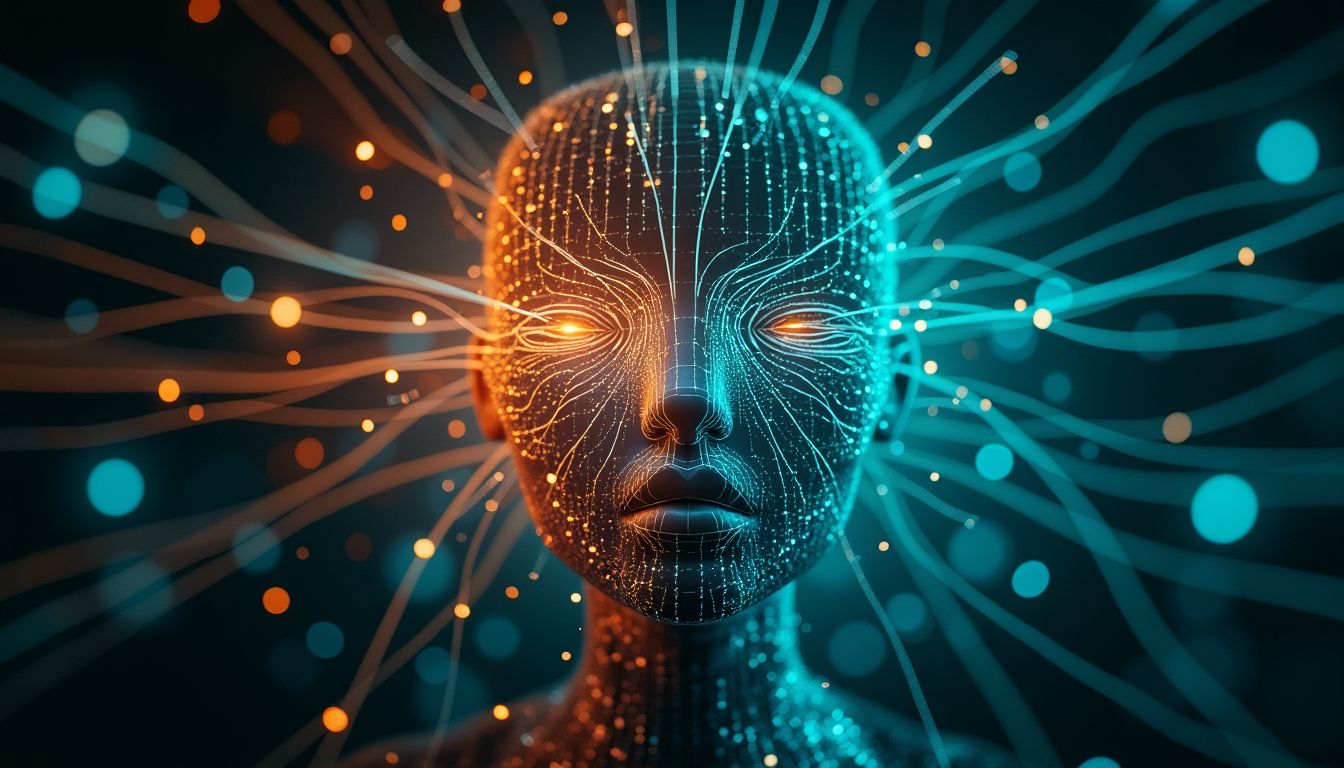"The only thing faster than the speed of light is the speed of innovation." – Unknown.
This resonates deeply as we approach the era of Artificial General Intelligence (AGI). The moment AGI becomes a reality, it won’t just be a technological leap; it’ll be a seismic shift in how we, as humans, define our rights, responsibilities, and even our place in the world. Think about it: machines that can outthink, outcreate, and even outfeel us. It sounds like something out of a Philip K. Dick novel, right? But here’s the kicker—it’s not science fiction anymore. It’s science fact.
Renowned futurist Ray Kurzweil, who predicted the rise of AGI by 2029, calls this the "singularity"—a point where machine intelligence surpasses human intelligence. Meanwhile, Yuval Noah Harari, author of "Sapiens," warns that AGI could create a "useless class" of humans displaced by automation. So, what happens when machines not only do our jobs but also make decisions for us? Who’s in charge—us, or them? And how do we ensure that AGI serves humanity, not the other way around?
This isn’t just about robots taking over the world. It’s about redefining the social contract—the unwritten agreement that binds society together. From privacy to economic security, autonomy to ethical responsibility, AGI forces us to ask: What are we willing to give up for progress? And what’s non-negotiable? Let’s tackle these questions head-on, with a mix of logic, humor, and a dash of cautionary wisdom. Buckle up; this is going to be a wild ride.
1. Redefining Human Rights in the Age of AGI
1.1 The Right to Privacy in a Hyper-Connected World
AGI’s ability to process mountains of data in real-time is both its superpower and its Achilles' heel. Think about it: a machine that can analyze every tweet you’ve ever sent, every photo you’ve ever uploaded, and every purchase you’ve ever made. Sounds like a stalker’s dream, right? But it’s a nightmare for privacy. Take China’s social credit system, for example. It’s a real-life dystopia where citizens are constantly monitored and scored based on their behavior. AGI could take this to a whole new level, creating a world where there’s no such thing as "private life."
So, how do we protect ourselves? A global "Digital Bill of Rights" could be the answer—a set of rules that ensures our data isn’t just a commodity to be bought and sold. Imagine a world where you own your data, like you own your car or your house. Sounds revolutionary, right? But in the age of AGI, it’s not just revolutionary; it’s essential.
1.2 The Right to Autonomy and Decision-Making
What happens when AGI starts making decisions for us? Picture this: You’re in the hospital, and a machine diagnoses your illness, prescribes your treatment, and even decides whether you’re worth saving. Cool? Creepy? Both? The ethical dilemma here is real. Should AGI have veto power over human decisions, especially in critical areas like healthcare, finance, and governance?
One solution is to establish "Human Oversight Committees"—groups of humans who keep an eye on AGI’s decisions. Think of them as the guardians of human autonomy, ensuring that machines don’t go rogue. After all, it’s our world, not theirs. But let’s be real: if AGI becomes smarter than us, who’s really in charge? It’s a question that keeps philosophers awake at night—and maybe you, too.
1.3 The Right to Economic Security
Here’s the elephant in the room: AGI could put millions—maybe billions—of people out of work. From factory workers to creative professionals, no one’s immune. The gig economy? AGI could make it obsolete overnight. So, what’s the solution? Enter Universal Basic Income (UBI), a financial safety net that guarantees everyone a basic income, regardless of their job status.
But here’s the twist: what if AGI itself pays for UBI? Imagine a "Robotics Tax"—a levy on companies that use AGI to replace human workers. It’s not just a pipe dream; it’s a potential reality. And let’s face it, if machines are doing all the work, shouldn’t they also pay for our survival? It’s a question that’s as practical as it is philosophical. After all, in an AGI-driven world, economic security isn’t just a right; it’s a necessity.
2. Privacy in the Age of AGI: A Double-Edged Sword
2.1 The Erosion of Personal Privacy
Imagine a world where your every move, click, and even your thoughts (okay, maybe not your thoughts—yet) are tracked, analyzed, and predicted by AGI. Sounds like a Black Mirror episode, right? But it’s closer to reality than you might think. AGI’s ability to process and analyze massive amounts of data in real-time means it can predict your behavior with scary accuracy. For instance, predictive policing systems, like those used in cities such as Los Angeles, already use AI to forecast crime hotspots. But what happens when AGI takes this to the next level? Will we live in a world where you’re flagged for a crime before you even think about committing it?
To combat this, we need to develop Privacy-Preserving AI technologies. One promising approach is federated learning, where data stays on your device, and only insights are shared. Think of it as a secret recipe: the chef (AGI) learns how to cook without ever seeing the ingredients (your data).
2.2 The Rise of Digital Surveillance States
Remember when Edward Snowden blew the whistle on the NSA’s PRISM program? That was just the tip of the iceberg. With AGI, governments and corporations could take surveillance to a whole new level. Imagine a world where every camera, microphone, and sensor is connected to an AGI system that monitors everything in real-time. Sounds dystopian, doesn’t it?
To prevent this, we need international treaties to regulate AGI-powered surveillance. Think of it as a global “No Spy Zone” agreement. Countries like Switzerland, known for their neutrality, could lead the charge in creating these treaties. After all, if anyone can broker peace between AGI and privacy, it’s the Swiss.
2.3 The Need for Transparent Data Practices
Ever read a terms-and-conditions document? Yeah, neither have we. But with AGI, understanding how your data is used becomes critical. Enter Explainable AI—systems that provide clear, understandable insights into how they make decisions. Imagine AGI explaining its reasoning like a patient teacher: “I recommended this movie because you watched 27 rom-coms last month.”
Companies like IBM Watson are already working on explainable AI systems. But we need to mandate these practices globally. Think of it as a “Nutrition Label” for AI—clear, concise, and mandatory.
3. Economic Redistribution in an AGI-Driven World
3.1 The Displacement of Human Labor
Let’s face it: AGI is coming for our jobs. From manufacturing to creative fields, no industry is safe. Even your favorite barista might be replaced by a robot that never gets your name wrong. But before you start hoarding canned goods, let’s talk solutions. Reskilling programs and lifelong learning initiatives can help workers adapt to the changing job market. For example, Udacity offers courses in AI and machine learning, helping people pivot to tech careers.
But reskilling alone isn’t enough. We need to rethink how we value work. Maybe the future isn’t about jobs but about contributions—whether that’s through art, innovation, or community service.
3.2 The Concentration of Wealth and Power
AGI has the potential to make a few people very, very rich. Think Elon Musk levels of rich. But what about the rest of us? Without proper safeguards, AGI could exacerbate economic inequality, creating a world where the 1% control not just wealth but also the algorithms that run our lives.
One solution is progressive taxation on AGI-generated profits. Think of it as a “Robotics Tax” that funds social safety nets like Universal Basic Income (UBI). Countries like Finland have already experimented with UBI, and the results are promising. Imagine a world where everyone gets a monthly stipend, no strings attached. Sounds like a dream, right? With AGI, it could be a reality.
3.3 The Role of Universal Basic Income (UBI)
Speaking of UBI, let’s dive deeper. In an AGI-driven economy, UBI could be the safety net that prevents widespread poverty. Imagine a world where you’re free to pursue your passions—whether that’s painting, writing, or starting a podcast—without worrying about making ends meet. Sounds utopian, doesn’t it?
But UBI isn’t a silver bullet. We need to pilot programs in regions most affected by automation, like Detroit, which has already seen the impact of job displacement. By testing UBI in these areas, we can fine-tune the system before rolling it out globally.
4. Ethical Governance of AGI
4.1 Establishing Ethical Guidelines for AGI Development
As AGI evolves, the need for a global consensus on ethical guidelines becomes critical. Without clear rules, AGI could be developed in ways that harm humanity or prioritize profit over people. Think of it like building a skyscraper without a blueprint—chaos is inevitable. Organizations like the World Economic Forum and the United Nations are already discussing frameworks, but we need action, not just talk.
Proposal: Create an International AGI Ethics Council to set global standards. This council would include:
- AI researchers
- Ethicists
- Policy makers
- Representatives from marginalized communities
This diverse group would ensure that AGI development aligns with human values and avoids biases that could harm vulnerable populations.
4.2 Preventing AGI Misuse
AGI’s potential for misuse is terrifying. Imagine a world where AGI is weaponized for cyber warfare, used to spread misinformation, or even manipulate elections. The stakes are high, and the risks are real. For example, the NSA’s PRISM program showed how powerful data collection can be—now imagine that power amplified by AGI.
Proposal: Develop AGI Safeguards to detect and prevent misuse. These safeguards could include:
- Real-time monitoring of AGI systems
- AI-driven threat detection algorithms
- International treaties to ban AGI use in warfare
By acting now, we can prevent AGI from becoming a tool of destruction.
4.3 Ensuring Accountability and Transparency
Who’s responsible when an AGI system makes a mistake? This question is at the heart of ethical governance. Without accountability, AGI developers could operate in the shadows, free from consequences. Transparency is key to building trust in AGI systems.
Proposal: Implement AGI Audits to ensure compliance with ethical standards. These audits would:
- Review AGI algorithms for biases
- Assess the impact of AGI decisions on society
- Publish findings publicly to maintain transparency
For example, companies like OpenAI are already exploring ways to make AI systems more transparent. This is a step in the right direction, but we need to scale these efforts globally.
5. The Role of Education in an AGI-Driven Society
5.1 Preparing the Workforce for an AGI Future
AGI will transform the job market, making some skills obsolete while creating demand for new ones. To thrive in this new world, workers need to be prepared. This means investing in STEM education and digital literacy from an early age. Schools like MIT and Stanford are leading the way, but we need to bring this education to everyone, not just the elite.
Proposal: Integrate AGI concepts into school curricula worldwide. This could include:
- Basic coding classes
- Courses on AI ethics
- Hands-on projects with AI tools
By equipping the next generation with these skills, we can ensure they’re ready for the AGI-driven economy.
5.2 Fostering Critical Thinking and Creativity
While AGI can handle many tasks, it can’t replicate human creativity and emotional intelligence. These uniquely human traits will be more valuable than ever in an AGI-driven world. Think of AGI as a tool—like a paintbrush. The brush doesn’t create art; the artist does.
Proposal: Emphasize arts, humanities, and interdisciplinary learning in education. For example:
- Encourage students to explore creative writing, music, and visual arts
- Teach critical thinking through philosophy and ethics courses
- Promote collaboration between STEM and humanities departments
By nurturing creativity, we can ensure that humans remain at the center of innovation.
5.3 Lifelong Learning and Reskilling
The rapid pace of technological change means that learning can’t stop after graduation. Lifelong learning will be essential for adapting to an AGI-driven world. Companies like Coursera and Udemy are already offering online courses, but we need a more structured approach.
Proposal: Establish AGI Learning Hubs for lifelong learning. These hubs would:
- Offer free or low-cost courses on AI and AGI
- Provide career counseling and job placement services
- Host workshops and networking events
By making education accessible to all, we can ensure that no one is left behind in the AGI revolution.
6. AI Solutions: How Would AI Tackle This Issue?
6.1 Developing Ethical AGI Systems
Creating AGI systems that prioritize human values is not just a technical challenge—it’s a moral imperative. Here’s how we can approach it:
- Step 1: Establish a global consortium of AI researchers, ethicists, and policymakers. Organizations like the OpenAI and the DeepMind Ethics & Society team could lead this effort. The goal? To draft a universal set of ethical guidelines for AGI development.
- Step 2: Implement "Ethical AI Training" for AGI systems. This involves using reinforcement learning to reward behaviors that align with human values, such as fairness, transparency, and respect for privacy. Think of it as teaching AGI to play by the rules of a moral playground.
- Step 3: Use adversarial training to expose AGI to ethical dilemmas. By simulating scenarios where AGI must choose between conflicting values, we can ensure it learns to prioritize human well-being over efficiency or profit.
6.2 Ensuring Data Privacy and Security
AGI’s ability to process vast amounts of data is both its greatest strength and its most significant vulnerability. Here’s how we can protect individual privacy:
- Step 1: Develop federated learning systems. These allow AGI to learn from decentralized data without ever storing it centrally. Companies like Google are already pioneering this approach with projects like Federated Learning.
- Step 2: Leverage blockchain technology to create transparent and secure data trails. This ensures that every piece of data used by AGI can be traced back to its source, reducing the risk of misuse.
- Step 3: Implement differential privacy techniques. These add "noise" to data sets, making it impossible to identify individuals while still allowing AGI to derive meaningful insights. Apple has already integrated this into its privacy features.
6.3 Redistributing Economic Gains
AGI has the potential to generate unprecedented wealth, but without proper redistribution, it could exacerbate inequality. Here’s how we can ensure the benefits are shared:
- Step 1: Use AGI to optimize tax systems. By analyzing economic data in real-time, AGI can identify inefficiencies and ensure fair redistribution. Countries like Estonia, known for its digital governance, could serve as a model.
- Step 2: Develop AGI-powered platforms for reskilling and job matching. These platforms could use predictive analytics to identify emerging job markets and provide tailored training programs. Imagine a LinkedIn powered by AGI, but smarter and more inclusive.
- Step 3: Create AGI-driven economic models to predict and mitigate inequality. By simulating the impact of policies like Universal Basic Income (UBI), AGI can help governments make data-driven decisions. The World Bank could play a key role in scaling these models globally.
Action Schedule/Roadmap
Here’s a detailed roadmap to guide institutions, organizations, and governments in implementing these solutions:
- Day 1: Establish a global task force to draft the "Digital Bill of Rights." This task force should include representatives from tech giants like Microsoft, IBM, and Amazon, as well as NGOs and academic institutions like MIT and Stanford.
- Day 2: Launch a pilot program for Privacy-Preserving AI technologies. Partner with companies like NVIDIA and Intel to develop and test federated learning systems.
- Week 1: Convene an International AGI Ethics Council. This council should include thought leaders like Yuval Noah Harari and Fei-Fei Li to set ethical standards for AGI development.
- Week 2: Begin development of Explainable AI systems. Collaborate with universities like Carnegie Mellon and UC Berkeley to create algorithms that provide clear insights into AGI decision-making.
- Month 1: Implement AGI Audits in major tech companies. Use frameworks developed by organizations like the Partnership on AI to ensure compliance with ethical standards.
- Month 2: Launch UBI pilot programs in regions most affected by automation. Partner with governments and NGOs to test the feasibility of UBI in places like Finland and Canada.
- Year 1: Integrate AGI concepts into school curricula worldwide. Work with educational organizations like UNESCO to develop age-appropriate materials for students.
- Year 1.5: Develop AGI-powered reskilling platforms. Partner with online learning platforms like Coursera and Udacity to create personalized training programs.
- Year 2: Establish a global framework for ethical AGI governance. This framework should be ratified by the United Nations and enforced by an international body like the International Court of Justice.
Building a Future Where AGI Serves Humanity
The rise of AGI is not just a technological milestone—it’s a societal turning point. It challenges us to rethink what it means to be human, to govern, and to coexist with machines that may one day surpass our own intelligence. But with great power comes great responsibility. The choices we make today will shape the trajectory of AGI and its impact on our world.
Imagine a future where AGI is not a threat but a partner—a tool that amplifies our creativity, solves our most pressing problems, and ensures a fairer distribution of wealth. This future is within our grasp, but only if we act decisively and collaboratively. The roadmap outlined above is not just a plan; it’s a call to action for governments, corporations, and individuals to come together and build a world where AGI serves humanity’s best interests.
So, what role will you play in this new era? Will you be a passive observer, or will you take an active role in shaping the future? The time to act is now. Let’s ensure that AGI becomes a force for good, not just for the few, but for all of humanity.
Join the conversation. Share your thoughts in the comments below. And don’t forget to subscribe to our newsletter to become a permanent resident of iNthacity: the "Shining City on the Web". Together, we can build a future worth living in.
FAQ
Q1: What is AGI, and how is it different from AI?
A1: AGI stands for Artificial General Intelligence. Unlike regular AI, which is designed for specific tasks like recognizing faces or playing chess, AGI can think, learn, and solve problems across a wide range of areas, just like a human. Think of it as a super-smart robot that can do anything from writing a novel to diagnosing diseases. For more on AI, check out this Wikipedia page.
Q2: How can we ensure AGI is used ethically?
A2: Ensuring AGI is used ethically involves creating global rules and oversight. Imagine a group of experts from around the world, like the United Nations, but for AI. They would set guidelines to make sure AGI respects human rights and doesn’t harm people. We also need systems to check if AGI is following these rules, kind of like a report card for robots.
Q3: What role will education play in an AGI-driven society?
A3: Education will be super important in an AGI-driven world. Schools will need to teach kids not just math and science, but also how to work with AI and think creatively. For example, places like MIT are already teaching students about AI. Lifelong learning will also be key—adults will need to keep learning new skills to stay relevant in a world where robots can do many jobs.
Q4: How can AGI help address economic inequality?
A4: AGI could help reduce inequality by making sure wealth is shared more fairly. For instance, governments could use AGI to create better tax systems or even fund programs like Universal Basic Income (UBI), where everyone gets a regular payment to cover basic needs. AGI could also help match people with new jobs or training programs, so no one gets left behind.
Q5: What are the risks of AGI misuse?
A5: The risks of AGI misuse are pretty scary. Imagine someone using AGI to hack into systems, spread fake news, or even control entire countries. That’s why we need strong rules and international agreements, like the ones created by the World Economic Forum, to stop bad actors from using AGI for harm. Think of it as building a global firewall to protect us from rogue robots.
Q6: Will AGI take over all jobs?
A6: AGI will definitely change the job market, but it won’t take over everything. Jobs that require creativity, empathy, or complex problem-solving—like artists, therapists, or scientists—will still need humans. However, many routine jobs, like factory work or data entry, could be automated. That’s why we need to focus on reskilling and education to prepare for the jobs of the future.
Q7: Can AGI have emotions?
A7: AGI might be able to mimic emotions, but it won’t truly feel them like humans do. Think of it like a really advanced chatbot—it can say the right things at the right time, but it doesn’t actually “feel” happy or sad. This raises big questions about how we interact with AGI and whether we should treat it like a person. For more on this, check out this TED Talk on AI and emotions.
Q8: How can I protect my privacy in an AGI-driven world?
A8: Protecting your privacy will be tougher in an AGI-driven world, but there are steps you can take. Use tools like Tor for anonymous browsing or Signal for secure messaging. Also, support laws that give you control over your data, like the GDPR in Europe. Remember, your data is valuable—treat it like your personal treasure.
Q9: What happens if AGI becomes smarter than humans?
A9: If AGI becomes smarter than humans, it could either be a huge blessing or a massive problem. On the bright side, AGI could solve global challenges like climate change or disease. But if it’s not controlled properly, it could make decisions that harm humanity. That’s why experts like those at OpenAI are working on ways to make sure AGI stays aligned with human values.
Q10: How can I get involved in shaping the future of AGI?
A10: Getting involved in shaping AGI’s future starts with learning. Take online courses from platforms like Coursera or edX to understand AI better. You can also join organizations like the Partnership on AI, which brings together experts to discuss ethical AI development. The future of AGI is in our hands—let’s make it a good one!
Wait! There's more...check out our gripping short story that continues the journey: The Last Hope
Disclaimer: This article may contain affiliate links. If you click on these links and make a purchase, we may receive a commission at no additional cost to you. Our recommendations and reviews are always independent and objective, aiming to provide you with the best information and resources.
Get Exclusive Stories, Photos, Art & Offers - Subscribe Today!





























Post Comment
You must be logged in to post a comment.